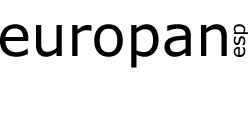EUROPAN España quiere compartir los puntos de vista de promotores, premiados, jurados, miembros del Comité Científico, organizadores… fragmentos de charlas donde ideas, opiniones y experiencias de diferentes agentes construyen un rico archipiélago de miradas diversas que alimentan la reflexión sobre el papel que la arquitectura puede desempeñar para mejorar nuestros entornos habitados a través de EUROPAN.
Fernando RODRÍGUEZ ha actuado como miembro del Jurado de EUROPAN 15 España junto a Javier MARTÍN RAMIRO (Presidente EUROPAN España) Bernardo BADER (www.bernardobadercom), Agata BUSCEMI (b2barq.com), Joan BUSQUETS (bau-barcelona.com), Lucía CANO PINTOS (www.selgascano.net), Eduardo DE MIGUEL ARBONÉS, Aglaée DEGROS (Miembro del Comité Científico EUROPAN Europe) y Pilar DÍAZ RODRÍGUEZ (www.paisajetransversal.org)
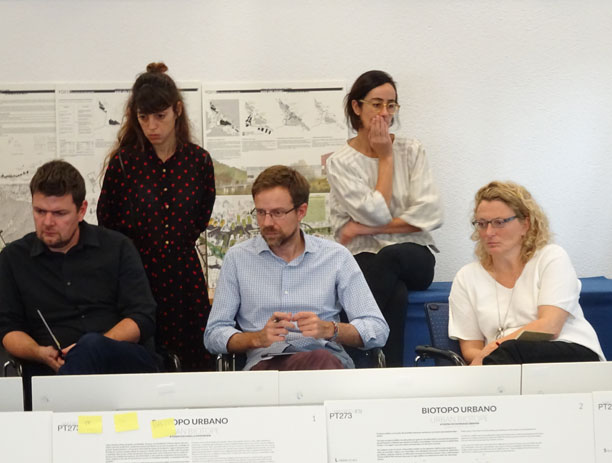
Actualmente es Profesor Ayudante Doctor del Departamento de Proyectos Arquitectónicos en la ETSAM-UPM en Máster Habilitante y MPAA. Ha impartido docencia y ha sido crítico invitado en otras instituciones de carácter internacional, como FAU PUCP Lima, Technische Universität Berlin, IE School of Architecture and Design o Universitat Internacional de Catalunya.
En 2015 defiende su tesis doctoral “Un entendimiento infraestructural del proyecto arquitectónico” (Premio Extraordinario de Doctorado) que recoge su interés sobre la condición arquitectónica de lo infraestructural y las escalas diversas en las que opera.
Escribe en revistas especializadas y ha publicado los libros “Un entendimiento infraestructural del proyecto” (Nobuko, 2016), “La materia de la identidad” (DPA 2017), “Standards” (DPA 2016), “Uncharted” (Actar 2014) y “Matterscapes” (Mairea 2013), entre otros. Ha sido comisario del ciclo de Conferencias argument#2 “Dual Practices” y es jurado de Europan España.
En 2007 funda FRPO Rodriguez & Oriol junto a Pablo Oriol, cuya trayectoria profesional ha sido reconocida con los premios Architectural Record Design Vanguard (Nueva York, 2012), Europe 40 under 40 (2009) y Bauwelt Preis (Berlín, 2007). Su obra ha sido reconocida con la selección para los Architectural Review Emerging Architecture Awards (2019), los Premios FAD (2019), el Pabellón de España en la Bienal de Venecia (2016, León de Oro), la nominación a los Premios Mies van der Rohe (2015), las IX y XII Bienales Españolas de Arquitectura y Urbanismo (2007 y 2013), o las V y IX Bienales Iberoamericanas de Arquitectura y Urbanismo (2006 y 2014). El trabajo de FRPO ha sido publicado ampliamente y sus propuestas han sido difundidas mediante conferencias y exposiciones frecuentes, nacionales e internacionales.
Fernando ha obtenido el premio 2ACAA (2019), el Hise Award (2014), el Premio de Obra Pública del Ayuntamiento de Madrid (2008), el Premio Archizinc (2007) y el Premio Alejandro de la Sota (2003) y ha sido seleccionado en los premios de la Fundación Camuñas para Jóvenes Arquitectos (2007).
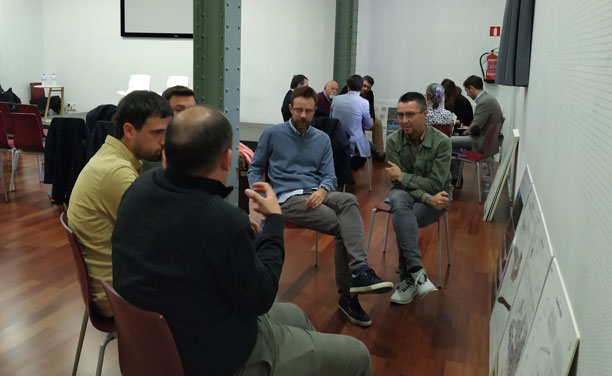
Fernando Rodriguez holds a PhD in Architecture from the Universidad Politécnica de Madrid. He studied Architecture in the ETSAM Madrid and the TU Berlin between 1995 and 2003.
He teaches at the Architectural Design Department of UPM ETSAM, both in Undergraduate and Graduate Programs. He has also taught and has been guest critic at other international institutions, such as FAU PUCP Lima, Technische Universität Berlin, IE School of Architecture and Design or Universitat Internacional de Catalunya.
In 2015 his PhD dissertation “An infrastructural understanding of architectural design” (PhD Prize 2016), showcases his interest in the architectural condition of the infrastructural condition and the different scales in which it performs.
He publishes in architectural journals and has recently published the books “Un entendimiento infraestructural del proyecto” (Nobuko, 2016), “La materia de la identidad” (DPA 2017), “Standards” (DPA 2016), “Uncharted” (Actar 2014) y “Matterscapes” (Mairea 2013), among others. He has been curator of the Lecture Series argument#2 “Dual Practices” and is an Europan España jury member.
In 2007 he founds FRPO Rodriguez & Oriol together with Pablo Oriol, being awarded with the Architectural Record Design Vanguard (New York 2012), the Europe 40 under 40 award (2009) and the Bauwelt Preis (Berlin 2007). Their work has been selected for the Architectural Review Emerging Architecture Awards (2019), the FAD Awards (2019), the Spanish Pavilion Exhibition at the Biennale di Venezia (2016, Golden Lion), the nomination for the Mies Van der Rohe Award (2015), the IX and XII Spanish Biennale for Architecture (2007 y 2013), or the V and IX Iberoamerican Biennale of Architecture and Urbanism (2006 y 2014). FRPO’s work has been widely published, and through often lectures and exhibitions along the world, they have shared their approach to architecture during these years.
Fernando has also obtained the 2ACAA Award (2019), the Hise Award (2014), the Ayuntamiento de Madrid Prize for Public Works (2008), the Archizinc Prize (2007) and the Alejandro de la Sota Prize (2003) and was selected for the Camuñas Foundation Young Architects Awards (2007).
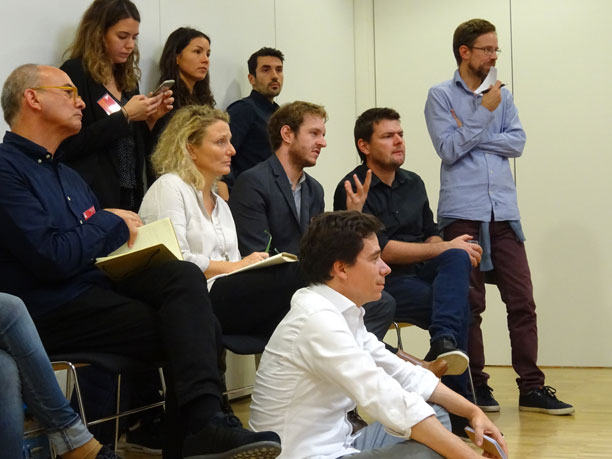
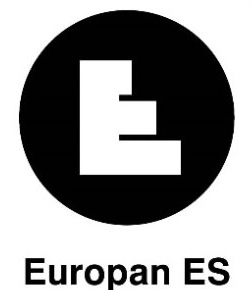
SERIE TESTIMONIOS
Los vídeos que aquí se publican formarán parte de la exposición de los resultados de EUROPAN 15 diseñada y producida por AZAB. Se han planteado a diferentes agentes las siguientes líneas de reflexión:
1_ ¿Es posible una práctica arquitectónica desconectada de la investigación y el conocimiento? ¿Qué papel juega EUROPAN más allá de sus emplazamientos como agitador y valedor de la arquitectura como práctica de investigación y progreso del hábitat? ¿Es EUROPAN una muestra y oportunidad dentro del I+D+I para mejorar nuestros entornos habitados?
2_El fomento de la escala intermedia, otra de las señas de identidad de EUROPAN, en la que urbanismo, arquitectura, diseño urbano o sociología se entremezclan y desdibujan ¿Esto supone una dificultad añadida o es una condición de complejidad que mejora las propuestas y los proyectos? ¿Qué ventajas y qué dificultades supone para el agente o el proyectista el enfrentarse a la redefinición de entornos que superan una parcela acotada y permiten entender el territorio en su conjunto?
3_El papel que juega y ha jugado EUROPAN como respaldo en la carrera de jóvenes arquitectos desde su primera edición en el año 89 ha sido muy notable. ¿Qué supone para un joven arquitecto la oportunidad de enfrentarse al reto de materializar sus ideas y poder aportar nuevas soluciones urbanas? // ¿Qué supone para un agente o entidad pública poder contar con un joven talento para redefinir su entorno? En una profesión en la que los concursos están plagados de condiciones de solvencias y experiencias que alejan a los jóvenes de su participación ¿qué singularidades aportan los jóvenes en la ideación de nuevas realidades urbanas y/o arquitectónicas?
4_La experiencia EUROPAN, más allá de la parcialidad de lo construido/proyectado en cada emplazamiento, puede tener esa intención de disrupción dentro de tramas construidas demasiado cargadas de complejos y convencionalismos. ¿Puede esta labor de autonomía del proyecto ser un activador de ideas alternativas de ciudad que supere las condiciones existentes al no llevar a la arquitectura a una norma general si no a un ejemplo para la ciudad o su entorno?
This proposal has a dynamic format which reaches beyond the unilateral nature of the traditional interview. Based on EUROPAN’s self-definition and its four main features, it will generate snippets of conversations in which the ideas, opinions and experiences of different agents will build up a rich archipelago of diverse perspectives that will give the general public an insight into the EUROPAN phenomenon.
EUROPAN is defined as: a biennial ideas competition for urban planning and architecture. It aims to improve knowledge and research in the habitat and urban planning field through exchanges amongst professionals from the participant countries in Europe.
1_ Can architectural practice be uncoupled from research and knowledge? What is the role of EUROPAN, beyond the sites as such, as an agitator and supporter of architecture as a practice involved with habitat research and progress? Is EUROPAN an example and also an opportunity to show the role that architecture can play in R+D+I to improve our inhabited environments? Each EUROPAN competition has an associated transversal theme that is defined and structured by international committees and experts. This gives each competition a common thematic focus. What is the advantage of this model over other cases that restrict the architectural output to a needs program with varying degrees of complexity? What major issues await a response in the immediate future?
2_ Another feature of EUROPAN is the promotion of the intermediate scale, in which urbanism, architecture, urban design and sociology are intermingled and blurred. Is this an added difficulty or is it an aspect that lends it complexity to improve the proposals and projects? For the agents and designers, what advantages and difficulties are involved in redefining environments beyond a specific restricted site and allowing competitors to look at a territory in its entirety?
3_ EUROPAN has played an important role in helping the careers of young architects ever since the first competition in 1989. What does the challenge of putting ideas into practice and designing new urban solutions mean for a young architect? // What does this opportunity to employ young talent to redefine an environment mean for a public agent or organisation? In a profession where competitions are rife with constraints about solvency and experience, which hinder participation by young people, what can young people contribute to the conception of new urban and/or architectural realities?
4_ The EUROPAN experience, apart from the partiality of what is built/designed on each site, may also include a complete rethink of built-up zones which are excessively burdened by hang-ups and conventions. Do you think this task with its design autonomy can be a catalyst for alternative ideas about the city that overcome pre-existing constraints by not leading the architecture towards a general rule, and instead, acting as an example for the city and its surroundings?
